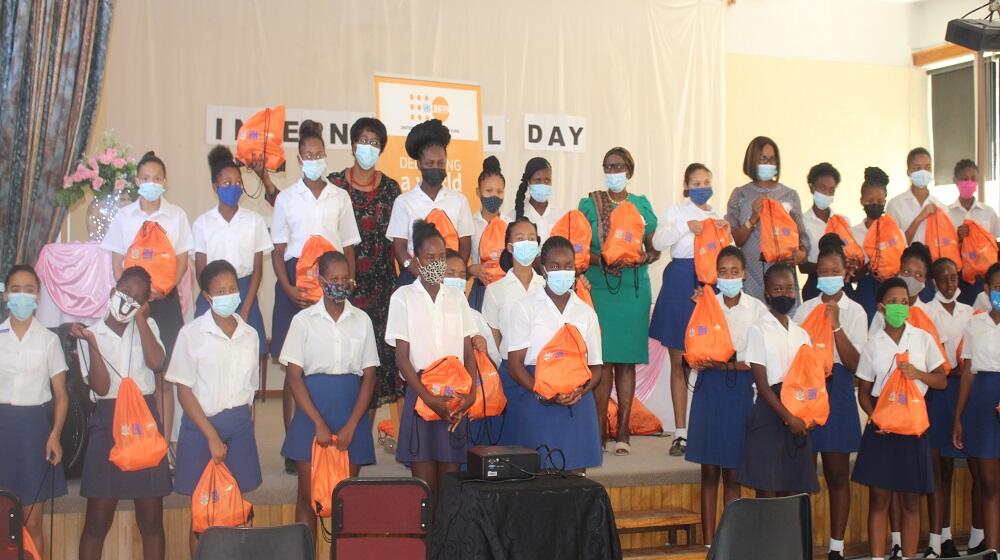WINDHOEK, Namibia − Digital connectivity for all girls is critical for human rights and can improve girls’ bodily autonomy, decision-making, and movement building.
But today, girls have less access than boys to the internet and technologies and as a result, are unable to access tech-related skills and jobs.
To mark the International Day of the Girl, UNFPA Namibia spent time with girls at the Eros Girls’ School in Windhoek to motivate, inspire and empower them on aspiring to greater heights and become healthy and productive young women.
The girls were also surprised with gift bags packed to the drawstring with hygiene and sanitary products.
“Adolescent girls have the right to a safe, educated and healthy life, not only during these critical formative years but also as they mature into women,” stated UNFPA Namibia Representative, Sheila Roseau.
“If effectively supported during the adolescent years, girls have the potential to change the world both as the empowered girls of today and tomorrow’s leaders,” she stressed.
She added: “Girls who are denied education face a higher risk of being married off against their will. The realisation of many rights is increasingly predicated on digital access, which can help girls find information, connect with peers, build social movements, explore their identities, track their periods and find help for harassment or violence.”
International Day of the Girl (11 October) is an occasion observed internationally to raise awareness of the obstacles that girls worldwide face and celebrate and reinforce their achievements.
The year’s theme is: 'Digital generation. Our generation.' The theme is a call for equal access to the internet for girls as well as digital devices.
Girls know their digital realities and the solutions they need to excel on their diverse pathways as technologists for freedom of expression, joy, and boundless potential
“Girls know their digital realities and the solutions they need to excel on their diverse pathways as technologists for freedom of expression, joy, and boundless potential,” noted Roseau.
The Covid-19 pandemic has shown how quickly inequalities can multiply. Under school closures, girls who lack access to the internet have seen losses in education, health information and care.
In addition to encouraging girls' empowerment and participation in the decisions that most affect them, UNFPA also works to protect the health and rights of adolescent girls in Namibia, through access to youth-friendly sexual and reproductive health counselling, information and services, including comprehensive sexuality education.
Also speaking at the event, regional school counsellor Valerie Tjirimuje highlighted the need for Generation Z need to be extra careful when engaging on the internet as it may be one of the causes of anxiety.
“A lot of challenges and opportunities come with being born in this era. This is a generation within a digital era and Generation Z are two times more likely to be diagnosed with anxiety as a result of the digital space,” stated Tjirimuje.
She advised the learners to always talk to people when faced with difficulties and use social media platforms meaningfully.


